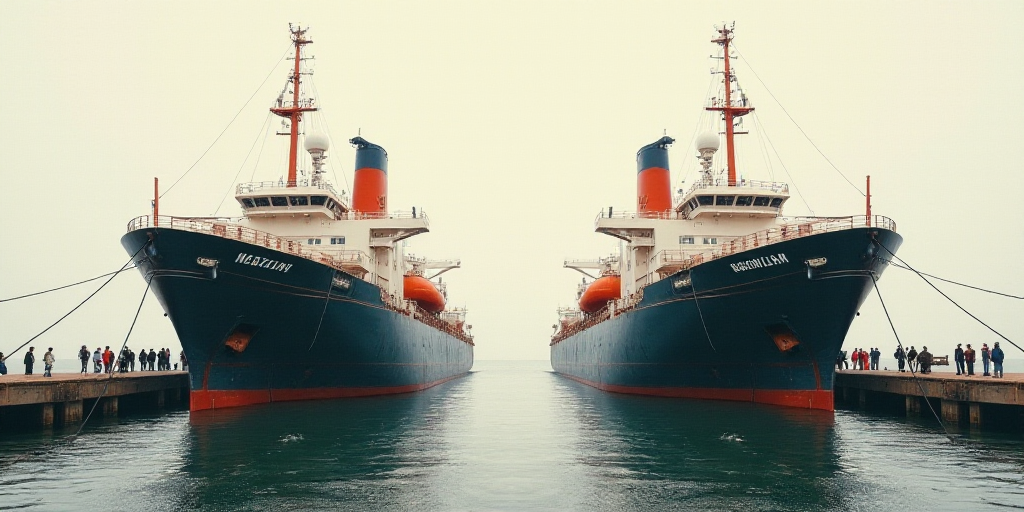Background on Key Figures and Context
Mexico’s security forces, including the Mexican Navy, have been ramping up efforts against drug trafficking amidst escalating tensions with the United States. President Donald Trump has threatened to impose a 25% tariff on all Mexican exports, citing concerns over drug trafficking and illegal immigration into the U.S.
Claudia Sheinbaum, the current President of Mexico City and a prominent figure in Mexico’s political landscape, has been at the helm during this period. Under her administration, Mexico has intensified its fight against drug cartels and illegal activities.
Major Maritime Operation Details
1.5 Tonnes of Cocaine Seized:
On Thursday, Mexican security forces announced the seizure of 1.5 tonnes of cocaine in a joint maritime operation supported by the Army, the Federal Attorney General’s Office (FGR), and the newly formed National Guard. The operation took place during maritime and aerial patrols in the Pacific Ocean, off the coast of Jalisco state.
According to the Mexican Navy’s statement, the confiscated cargo consisted of 38 packages containing approximately 1,500 kilograms of suspected cocaine.
Previous Successes:
Since the beginning of Claudia Sheinbaum’s administration, Mexican security forces have secured around 40 tonnes of cocaine at sea, equivalent to roughly 3 million doses. This has resulted in an estimated economic impact of 362,812,500 Mexican pesos.
Trump’s Pressure and Mexico’s Response
President Trump has criticized Mexico and Canada, its neighbors and trade partners in the North American Free Trade Agreement (NAFTA’s successor, the USMCA), for failing to curb drug trafficking and illegal immigration into the United States. In response, Trump has threatened to impose tariffs on Mexican exports.
Facing these pressures, the Mexican government has taken several steps, including deploying 10,000 members of the National Guard to its northern border, extraditing 29 high-profile cartel leaders to U.S. authorities, and bolstering anti-drug operations.
Mexico has partially mitigated the impact of these tariffs, which affect the automotive and steel industries but exclude goods exported under the USMCA.
Key Questions and Answers
- Who is Claudia Sheinbaum? Claudia Sheinbaum is the current President of Mexico City and a significant figure in Mexico’s political scene. She has been instrumental in leading the country’s response to drug trafficking and other security challenges during her administration.
- What is the North American Free Trade Agreement (NAFTA) successor? The North American Free Trade Agreement (NAFTA) was replaced by the United States-Mexico-Canada Agreement (USMCA), which took effect on July 1, 2020.
- What measures has Mexico taken in response to Trump’s tariff threats? Mexico has deployed National Guard troops to its northern border, extradited cartel leaders to the U.S., and intensified anti-drug operations.
- How have Mexican industries been affected by the tariffs? The tariffs have primarily impacted Mexico’s automotive and steel industries, although goods exported under the USMCA are exempt.






